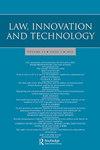人工智能训练数据的法律框架——从第一原则到《人工智能法》
Q1 Social Sciences
引用次数: 15
摘要
摘要针对欧盟层面最近的监管举措,本文表明,人工智能的培训数据不仅在人工智能应用程序的开发中发挥着关键作用,而且目前欧盟法律还没有充分涵盖这些数据。在这篇文章中,我重点讨论了人工智能训练数据的三个核心风险:数据质量风险、歧视风险和创新风险。现有的欧盟法律,除了文本和数据挖掘的新版权例外,只充分解决了这一风险状况的一部分。因此,本文为数据集和人工智能训练的歧视敏感质量制度奠定了基础,该制度将自己从数据保护法适用于人工智能训练数据的争议问题中解放出来。此外,它还规定了GDPR下用于人工智能培训目的的个人数据重复使用的具体指南。归根结底,立法和解释的任务在于在个人保护和促进创新之间取得适当的平衡。文章最后对这方面的《人工智能法》提案进行了评估。本文章由计算机程序翻译,如有差异,请以英文原文为准。
A legal framework for AI training data—from first principles to the Artificial Intelligence Act
ABSTRACT In response to recent regulatory initiatives at the EU level, this article shows that training data for AI do not only play a key role in the development of AI applications, but are currently only inadequately captured by EU law. In this, I focus on three central risks of AI training data: risks of data quality, discrimination and innovation. Existing EU law, with the new copyright exception for text and data mining, only addresses a part of this risk profile adequately. Therefore, the article develops the foundations for a discrimination-sensitive quality regime for data sets and AI training, which emancipates itself from the controversial question of the applicability of data protection law to AI training data. Furthermore, it spells out concrete guidelines for the re-use of personal data for AI training purposes under the GDPR. Ultimately, the legislative and interpretive task rests in striking an appropriate balance between individual protection and the promotion of innovation. The article finishes with an assessment of the proposal for an Artificial Intelligence Act in this respect.
求助全文
通过发布文献求助,成功后即可免费获取论文全文。
去求助
来源期刊

Law, Innovation and Technology
Social Sciences-Law
CiteScore
4.50
自引率
0.00%
发文量
18
期刊介绍:
Stem cell research, cloning, GMOs ... How do regulations affect such emerging technologies? What impact do new technologies have on law? And can we rely on technology itself as a regulatory tool? The meeting of law and technology is rapidly becoming an increasingly significant (and controversial) topic. Law, Innovation and Technology is, however, the only journal to engage fully with it, setting an innovative and distinctive agenda for lawyers, ethicists and policy makers. Spanning ICTs, biotechnologies, nanotechnologies, neurotechnologies, robotics and AI, it offers a unique forum for the highest level of reflection on this essential area.
 求助内容:
求助内容: 应助结果提醒方式:
应助结果提醒方式:


